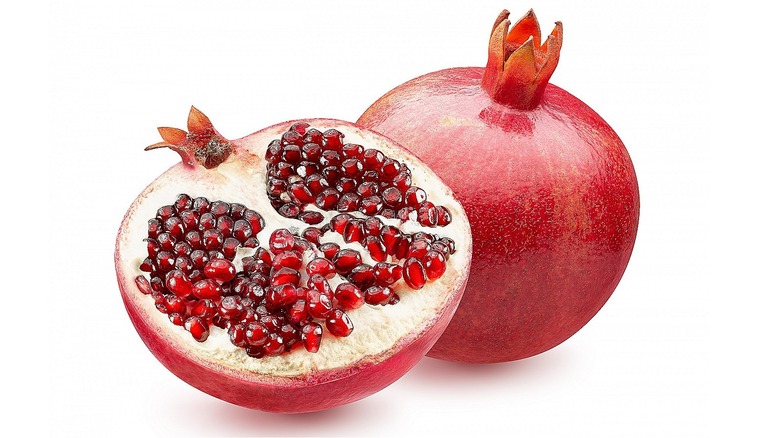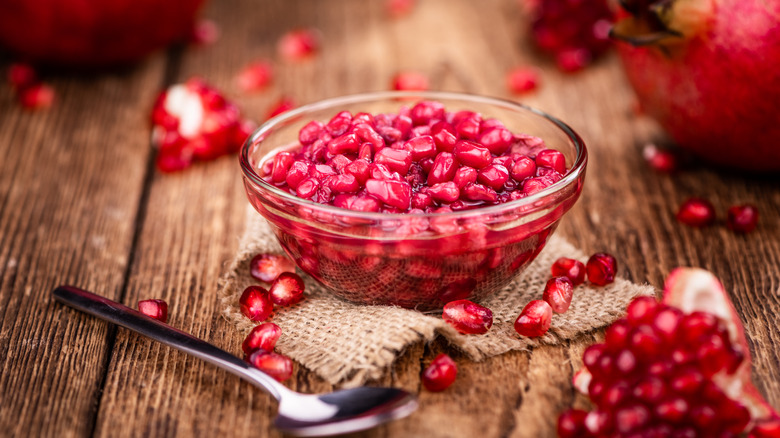This Is How Long Pomegranates Take To Go Bad
The pomegranate of the True berry fruit group (believe it or not) is a deceptively hardy-looking fruit. Be that as it may, it will still go bad over time, per Stanford Magazine.
It is ironic that even though classified as a berry, the pomegranate gets its name from the apple (pomum granatum, Latin for "apple of many seeds"), per The New York Times. And even more so is that their appearances on planet earth are separated by more than 750 millennia, per Four Winds Growers, Historic Sites. Another commonality between the two fruits is that they are both symbolic — if not in the Bible, then in Christianity (Remember the Garden of Eden?).
Some, at a certain point, believed that the multi-seeded fruit (pomegranate) had 613 seeds, per National Library of medicine. Additionally, their faith dictated that the number of pits paralleled the number of laws in the Bible, which is also surprising to us (we thought there were only ten). Alternatively, the University of Illinois says the fruit can have up to 1,400 seeds (hopefully not representing as many biblical rules).
The lifespan of a pomegranate
The pomegranate — unlike the fruit it gets its name from — ceases to produce sugar after harvest. That means it doesn't get any riper or sweeter, per The Spruce Eats, but unfortunately still ages. Consequently, the pomegranate will go off without getting ripe if you pick it prematurely.
Like any other fruit, it has a limited life span, despite its thick skin and hardy appearance. The temperature of its surrounding environment determines its longevity. Kept in the refrigerator, the True berry family member will last up to two months, according to Can It Go Bad. Stored at room temperature, however, it will only last for two weeks.
A notable aspect of the lifespan of pomegranates is that once you remove the seeds from the casing and store them in a sealed container or jar, they will only last for a week, per Does It Go Bad. This seems contrary to its symbolism of resurrection and eternal life, per National Library of Medicine.

